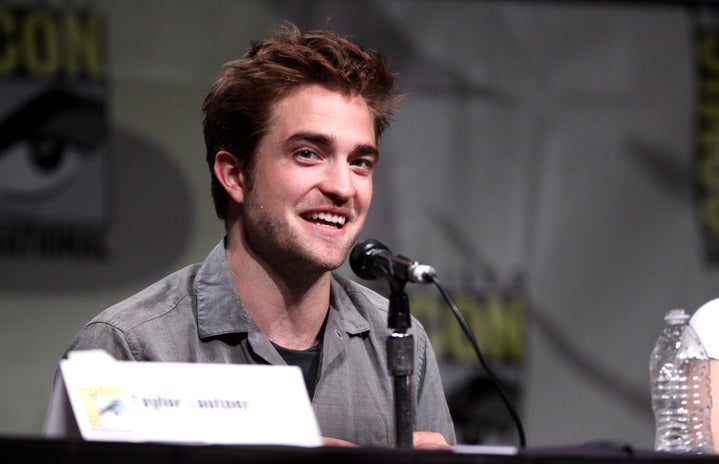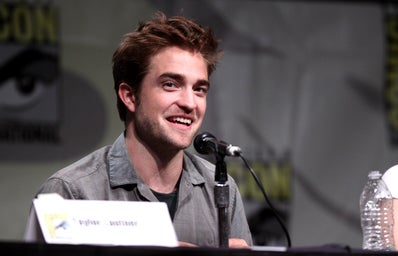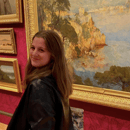Some of my favorite memories from the past four years have been the phone calls home to my mom in North Carolina. In the course of our conversations, I usually like to complain to her about people at work or in class, and in turn, she likes to inform me of what their clinical diagnoses would be. It always brightens my day and gives my unfortunate situations a humorous twist. I should clarify, my mother is a licensed therapist who has been practicing for 31 years, and although she no longer owns a private practice, she is currently licensed to provide supervision to counseling associates and simultaneously works as a high school guidance counselor. How do you say “girlboss” in therapy-speak?
Anyways, you may not know this, but therapist licensure is passed down hereditarily to the eldest daughter. Thank you, mom. This makes me perfectly qualified for this article, as I will be psychologically analyzing one of the most interesting celebrities in popular culture, and one of my favorite actors: Robert Pattinson.
Of course, Robert Pattinson has been in the spotlight for quite some time, gaining intense popularity for his role in the Twilight series as Edward Cullen in 2008. Since then, he has remained relatively famous, consistently appearing in films up to his most recent release: The Batman (2022).
But it is not his acting that has put him (and kept him) in the center of recent Hollywood news, rather, it is his interviews and public presence. More specifically, it is the lies and unhinged stories he concocts during his interviews.
Right off the bat, I actually will not be making an effort to diagnose Robert Pattinson with any particular social or mental disorder in this article. This is because I don’t know him and because sharing a last name with my mother unfortunately does not mean we share degrees and certifications. I just think that his decision to stretch social phenomena to their extremes is an interesting one, and likely one that we will continue to reward with articles just like this one.
Below, you will find an incomplete list of Robert Pattinson’s (possibly true) fabrications and interesting interview techniques:
1. Circa 2011, Robert Pattinson appeared on The Today Show in order to be interviewed about his movie, Water for Elephants. Because it was a circus-themed film, the interviewer asked Robert Pattinson if he had ever dreamed of running away to the circus. Pattinson responded no, and, “The first time I went to see the circus, somebody died. One of the clowns died.” When asked how the clown died, Pattinson immediately said, “His little car exploded. The joke car exploded on him.”
2. Robert Pattinson claimed that he used to be a hand model.
3. Robert Pattinson claimed that he was expelled from his first prep school for peddling porn.
4. Along the lines of porn, Robert Pattinson was asked what he would do if acting stopped working out for him and if The Batman flopped in theaters. After a moment of contemplation, he states, “Porn….But art house porn.”
5. Robert Pattinson said that he was a fake furniture designer who makes tiny chairs out of clay, takes pictures of them, and sends them to a designer he knows who helps build them.
6. Apparently, Robert Pattinson bored a stalker so bad that she stopped stalking him. He said, “I just complained about everything in my life and she never came back.”
7. Every actor’s dream is directing. Robert Pattinson claimed that if he were given the opportunity to direct, he would have snuck a walrus into a sex scene on the set of Breaking Dawn.
8. Oprah asked if Robert Pattinson and Kristen Stewart were dating. Without missing a beat, Pattinson responded with, “Kristen’s pregnant.”
9. Robert Pattinson’s “cover interview” with Gentleman’s Quarterly was a short film of his search for a hot dog, titled, “Robert Pattinson Desperately Needs a New York City Hot Dog.”
10. When Robert Pattinson struggled to find work after playing Cedric Diggory in Harry Potter and the Goblet of Fire, he told people in the industry that he had attended the Royal Academy of Dramatic Arts with Prince William. He even recalls telling some people that he was a member of the royal family and that he studied at Oxford. This is what I mean when I say I’m padding my resume.
11. In an interview with Gentlemen’s Quarterly, Pattinson said that he was working on a business plan for a fast-food style restaurant that serves hand-held pasta. What is the restaurant’s title? “Piccolini Cuscino,” or, “Little Pillow.”
12. Robert Pattinson thinks there’s a ballerina inside him.
13. Robert Pattinson thinks there’s a little gremlin inside him.
14. Robert Pattinson said that if he ruled the world, he would punish all boring people, stating, “People who are boring should be in prison and be forced to learn to be creative with the other prisoners.” I would like to point out here that Pattinson said his own stalker got bored of him.
Once again, this is not a comprehensive list of Robert Pattinson’s most notable interview moments, but I think it gives a good overview of his general vibe and disposition, and provides us with a basic framework with which we can build a psychological interpretation.
Many scholars (random writers on the internet) have effectively accused Robert Pattinson of demonstrating the behaviors of a sociopath through his outrageous interviews. After all, it might not be second nature for most people to fabricate the horrific death of an exploding clown. While I do understand this approach, I feel that this verdict is definitely an exaggeration. Instead, I feel that there are a plethora of factors influencing Pattinson’s behavior, each of which we must consider.
First of all, Pattinson has been incredibly open about his tendency to stretch the truth. When confronted with his lies, Pattinson has told interviewers that if he doesn’t have anything interesting to say, he will find something interesting to say. As an actor, I am sure that he has some sort of experience with improvisation, leading to his wacky responses. Someone who does not have a therapist for a mother might use this admission to claim that Pattinson is a pathological liar, but my expertise disagrees with this notion.
When asked about his tendency to fib, Pattinson said, “I liked saying sort of provocative things ‘cause I thought it was funny. I get very, very uncomfortable about doing sort of earnest things.” With this information, I think that we should perhaps flip the narrative for a moment and consider our own role in forcing Robert Pattinson into a position where he feels he needs to lie. It is not revolutionary to say that we as consumers constantly demand content from public figures, but this content has shifted to become more and more personal as we vie for intimacy with these larger-than-life characters. Perhaps Pattinson feels pressured by this new social norm and thus feeds us the content he knows will keep his career and status viable.
As a frequent fibber myself, the lies themselves are hilarious, and likewise I see no reason to persecute Pattinson for his desire to reserve true vulnerability and earnestness for the people close to him. However, I am interested in two social phenomena, both of which I believe Pattinson is guilty.
The first is the Phenomenology of Fame. This phenomenon explains how, in relation to self, “being famous leads to loss of privacy, entitization, demanding expectations, gratification of ego needs, and symbolic immortality.” Robert Pattinson became exceptionally famous at a young age, so the behaviors that he exhibited when he was a teenager were rewarded with fame and money. It is not unlikely that his emotional maturity was stunted at this age, and so he heavily leans into the “gratification of ego needs and symbolic immortality” of that age by transforming into a self-indulging liar.
Finally, Robert Pattinson probably knows that celebrity status is often protected by the façade of relatability. Not to state the obvious, but Robert Pattinson is objectively gorgeous and enormously wealthy. These qualities separate him from his audience of average citizens, including myself. The thing that prevents Robert Pattinson, and all celebrities, from becoming too far removed from us is the action of making himself relatable. In several interviews, Pattinson has claimed that he doesn’t wash his hair, that he doesn’t work out, and that he eats like a wild animal right out of the cans. These sentiments, coupled by the other examples in the list above, indicate to me that he is making an effort to align himself with and connect himself to what he believes is the “average” citizen. He balances the perceived glamor and sophistication associated with celebrity with the perceived lifestyles of his audience in order to make himself seem “down-to-earth” and unimmune to embarrassment.
But who knows? Maybe Robert Pattinson is just being a Taurus!


